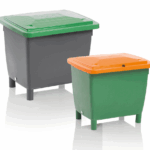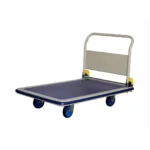What does oil filter do? While a relatively small component, this piece is essential to your vehicle running smoothly. Like other parts, it requires regular replacement, or your car may experience serious consequences.
What Happens If You Don’t Change Your Car’s Oil Filters?
Oil lubricates the moving parts in your engine, which means it also gets exposed to combustion. To remove dirt and debris, the used oil passes through a filter before flowing back into the engine. When the filter is too dirty, it doesn’t sufficiently clean the oil, which can cause the following issues. Furthermore, in conjunction with routine oil filter maintenance, it is of utmost importance to verify the proper functioning of other critical components, such as the BMW oil cooler. This diligent approach ensures the preservation of optimal engine performance and serves as a preventive measure against potential issues.
Clogged Filters
Over time, debris builds up in oil filters. Eventually, it reaches a point where the filter can’t hold more. That means dirty oil flows back into the engine. Small bits of dirt and debris can scrape against sensitive parts, damaging them.
Engine Damage
Without proper lubrication, moving metal parts grate against each other. This rough contact causes damage over time. In the worst-case scenario, you may have to replace the entire engine, an expensive and time-consuming repair.
Oil Will Sludge
Thick, dirty oil takes on a sticky, pudding-like consistency. Instead of facilitating smooth movements, it can stick to important parts and interfere with your engine’s performance. When oil reaches this consistency, you usually need a flush before you can replace the oil.
How Do You Know It’s Time To Replace Your Oil Filter?
You should check your oil filters every time you change the oil. However, there’s always the chance your filter will fill up between changes. If you notice any of the following signs while driving, it’s time to get a new filter.
Decreased Oil Pressure
Thick oil is slow-moving, which causes decreased oil pressure. Leaks can also contribute to this issue, so if you notice low pressure, check the hose as well as the filter.
Overheating Engine
Metal parts grinding against each other creates heat. If the heat continues to build, it will eventually cause the engine to get too hot. Most vehicles have a gauge on the dashboard to warn drivers about the temperature under the hood.
Of course, many things can cause an engine to overheat:
- Broken water pump
- Leaky coolant system
- Clogged coolant hose
- Faulty radiator fan
If your vehicle overheats, you should check under the hood to determine the cause.
Dirty Exhaust Fumes
When dirt gets in the engine, it burns. The resulting exhaust smells burnt and looks much darker than normal. Dark exhaust may cause you to fail an emissions test, so take care of your filters before registration rolls around.
Poor Car Performance
Suboptimal engine function translates into poor vehicle performance. For example, you may notice less power when accelerating. These changes can be dangerous, as they affect your control over the car, so check your filter immediately if this happens.
Finding filters for car is easier than you may think. Most automotive stores carry them, allowing you to perform this maintenance yourself. If you don’t know what kind of filter you need, an employee can help you find a match.






